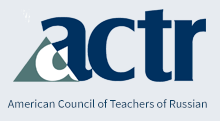Russian Language Journal
Keywords
Russian language, disinformation, propaganda, censorship, media literacy
Abstract
This essay explains the debates and theoretical insights of the emerging transdisciplinary field of Disinformation Studies as an important set of tools for designing and implementing curricula that include new media in the Russian language classroom. In the first part of the essay, I clarify a number of terms in scholarly literature on disinformation that seek to add nuance to our evolving understanding of the problematic forms information can take: disinformation, misinformation, malinformation, knowledge production, influence campaign, and information war. While the terms propaganda and censorship have continued relevance in teaching media literacy, I argue that this new terminology helps identify distinctive types of false and misleading narratives. In the second part, I contextualize this terminology in Russian and Soviet cultural history through readings of Tat’iana Tolstaya’s dystopian novel Slynx (2000) and Peter Pomerantsev’s journalistic account of disinformation, This is Not Propaganda (2019). In literary and journalistic form, these works document the crisis of meaning after the fall of the Soviet Union in relation to the study of disinformation as an integral component of media literacy. Finally, I analyze the language in Putin's address (February 24, 2022) justifying the war in Ukraine and also Artem Gennadievich Sheikin’s blog post (March 2, 2022) about the dangers of disinformation on the “Senators’ Blog” of the Совет Федерации. These authentic texts, or parts of them, could be taught in the Russian language classroom as specific examples of official Russian-language discourse related to disinformation for two purposes. Firstly, they highlight the politicized nature of the terminology of disinformation and help students navigate the discrepancies between new terminology that is emerging in the predominantly English-language field of Disinformation Studies and Russian-language cognates used in official Russian political discourse. Secondly, the texts provide an important background for teachers seeking to prepare Russian-language materials from the news or social media related to disinformation. Taken together, the concepts developing in Disinformation Studies, the cultural history of the phenomenon of disinformation, and contemporary Russian-language usage inform both the theory and practice of teaching media literacy, propaganda, and censorship in the Russian-language classroom.
Recommended Citation
Dement, Sidney Eric
(2023)
"In Theory: Дезинформация,"
Russian Language Journal: Vol. 73:
Iss.
2, Article 3.
DOI: https://doi.org/10.70163/0036-0252.1343
Available at:
https://scholarsarchive.byu.edu/rlj/vol73/iss2/3

